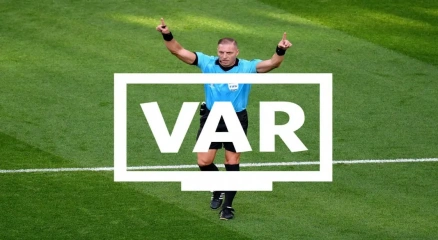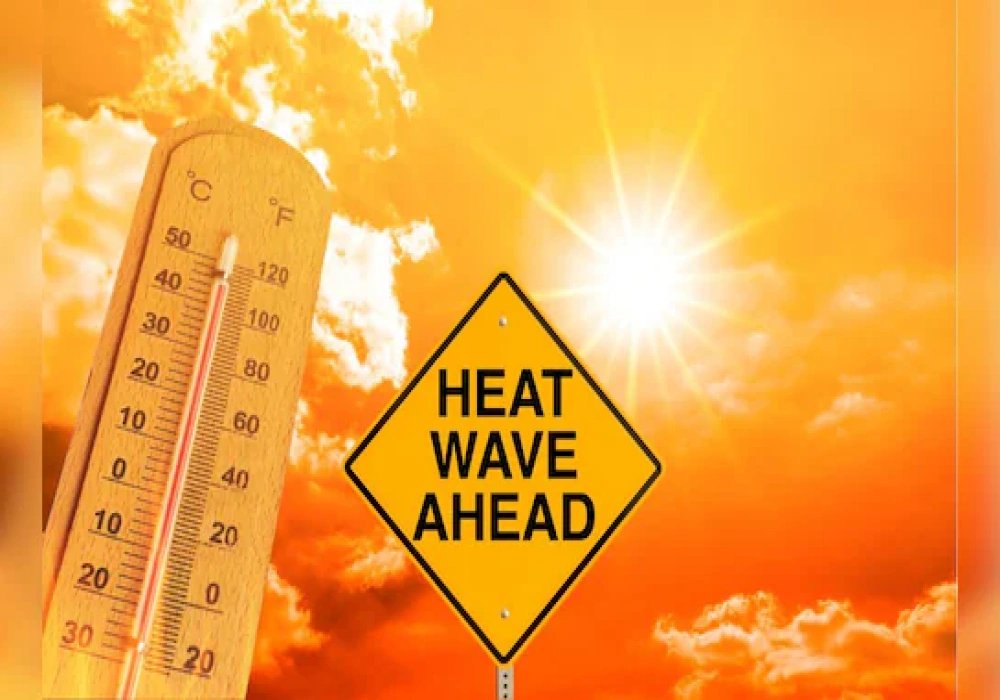As the global population steadily climbs toward 9 billion, crop roduction has taken center stage in the fight to ensure food security and economic stability. In Bangladesh and around the world, farmers, scientists, and policymakers are working together to overcome environmental challenges and increase agricultural yields. Crop production—the process of growing food, fiber, and fuel crops—remains the backbone of agriculture. From rice and wheat to maize, potatoes, and oilseeds, these crops form the primary food source for billions. However, rising temperatures, erratic rainfall, and soil degradation are making traditional farming methods less effective. Climate Change Threatens Output Over the past decade, changing climate patterns have caused disruptions in planting and harvesting cycles. In many areas, floods and droughts have reduced yield per hectare. According to the Bangladesh Agricultural Research Council (BARC), rice yields have fluctuated by as much as 15% in recent years due to unpredictable weather. "This year alone, over 25% of the Boro paddy fields in northern districts faced water stress due to delayed rains," said Dr. Farzana Rahman, an agricultural scientist at BARI (Bangladesh Agricultural Research Institute). "We need to innovate faster than climate changes." Modern Techniques Take Root To combat these challenges, researchers are promoting climate-resilient varieties of crops and introducing precision agriculture technologies. These include the use of drones for field monitoring, satellite data for weather prediction, and automated irrigation systems to conserve water. In southern Bangladesh, for example, saline-resistant rice varieties have helped farmers maintain production levels despite rising sea levels and saline intrusion in the soil. Additionally, vertical farming, hydroponics, and integrated pest management (IPM) are slowly being adopted in peri-urban areas, particularly among younger agri-entrepreneurs. Government Push & Policy Support The government has also stepped in with targeted subsidies, smart card systems for fertilizer distribution, and minimum support prices (MSP) for key crops like rice and wheat."We are committed to ensuring that farmers have access to modern inputs, training, and markets," said Agriculture Minister Dr. Md. Abdul Karim. "Our goal is not just higher production, but sustainable, profitable farming." The National Agriculture Policy 2025 draft focuses heavily on encouraging crop diversification—moving away from rice-only cultivation toward higher-value crops like pulses, oilseeds, and vegetables, which not only improve soil health but also boost farmers' incomes. The Road Ahead Experts warn that without significant investment in agricultural research, extension services, and infrastructure (such as cold storage and rural roads), the gains in crop production may not be sustained. Additionally, smallholder farmers need better access to credit, insurance, and market linkages to remain competitive.Still, the future looks promising. With the integration of science, technology, and farmer-friendly policies, the journey toward a more productive and resilient agricultural sector is underway. Key Facts: Agriculture employs ~40% of Bangladesh's labor force. Rice contributes over 70% of total cereal production in the country. Climate-resilient crop varieties are increasing in adoption, especially in flood-prone and saline zones.
Global stock markets remained mixed today as investors weighed fresh U.S. inflation data, corporate earnings reports, and the ongoing economic uncertainty in China and Europe. The U.S. stock market opened slightly higher on Monday morning, with the Dow Jones Industrial Average rising 0.4%, the S&P 500 climbing 0.3%, and the Nasdaq Composite gaining 0.5% in early trading. Investors responded positively to June's U.S. Consumer Price Index (CPI) report, which showed inflation cooling slightly to an annual rate of 3.0%, down from 3.3% in May."Markets are optimistic that the Federal Reserve may pause or even cut interest rates by the fall," said Lisa Raymond, chief analyst at Morgan & Co. "But it's still a wait-and-see situation, especially with more earnings coming this week." Wall Street Opens Higher Dow +0.4%, S&P 500 +0.3%, Nasdaq +0.5% on Monday morning. Boosted by June CPI showing inflation cooled to 3.0% (down from 3.3%). Hopes rise for potential Fed rate cut or pause by fall. The U.S. stock market opened slightly higher on Monday morning, with the Dow Jones Industrial Average rising 0.4%, the S&P 500 climbing 0.3%, and the Nasdaq Composite gaining 0.5% in early trading. Investors responded positively to June's U.S. Consumer Price Index (CPI) report, which showed inflation cooling slightly to an annual rate of 3.0%, down from 3.3% in May. "Markets are optimistic that the Federal Reserve may pause or even cut interest rates by the fall," said Lisa Raymond, chief analyst at Morgan & Co. "But it's still a wait-and-see situation, especially with more earnings coming this week." Tech Leads the Way Technology stocks led the gains in the U.S., with Apple (AAPL) up 1.8% and Nvidia (NVDA) jumping 2.4%, as demand for AI and semiconductors remains strong. Tesla (TSLA) also rebounded, rising 3.1% after announcing better-than-expected Q2 vehicle deliveries. Global stock markets showed a mixed performance as investors weighed persistent inflation concerns against a wave of corporate earnings reports. While strong results from major tech companies helped lift some indexes, uncertainty surrounding central bank policies and the future path of interest rates kept others in check. In the U.S., Europe Struggles on Growth Concerns Meanwhile, European markets showed little movement, with the FTSE 100 in London flat and Germany’s DAX down 0.2%. Investors remain concerned about weak industrial output and rising energy costs across the Eurozone.“The European economy is showing signs of fatigue,” said Carla Dupont, economist at BNP Paribas. “High borrowing costs and geopolitical tensions are dragging down business activity.”Global stock markets showed a mixed performance as investors weighed persistent inflation concerns against a wave of corporate earnings reports. While strong results from major tech companies helped lift some indexes, uncertainty surrounding central bank policies and the future path of interest rates kept others in check. In the U.S., Market Performance Summary Table Region Index/Company Movement (%) Key Driver USA Dow Jones +0.4% Positive CPI report (3.0% inflation) S&P 500 +0.3% Rate cut optimism Nasdaq +0.5% Tech stock gains Apple (AAPL) +1.8% Strong AI demand Nvidia (NVDA) +2.4% Semiconductor growth Tesla (TSLA) +3.1% Strong Q2 deliveries Europe FTSE 100 (UK) 0.0% Flat due to economic uncertainty DAX (Germany) -0.2% Weak industrial output, high energy costs Asia Nikkei 225 (Japan) +0.6% Strong export performance Shanghai Composite -1.2% Property sector risks, low consumer spending Asia Mixed as Chinese Markets Slump In Asia, markets showed mixed results. Japan’s Nikkei 225 gained 0.6%, supported by strong export data. However, Chinese markets fell sharply, with the Shanghai Composite down 1.2%, as fears about the country’s property sector and sluggish consumer spending persisted. Gains in consumer and tech sectors pushed markets higher, but weaker-than-expected bank earnings and inflation-related jitters limited broader momentum. European markets edged lower as traders grew cautious about global trade tensions and slowing growth indicators, while Asian markets saw mixed results, with Hong Kong posting modest gains and Tokyo slipping slightly. Overall, market sentiment remains cautious as investors await further economic data and guidance from central banks. Looking Ahead Investors are now turning their focus to key corporate earnings this week from major banks like JPMorgan Chase, Goldman Sachs, and Citigroup, as well as tech giants like Netflix and Microsoft. The results are expected to provide a clearer picture of business resilience amid high interest rates and uncertain global demand. Overall, market sentiment remains cautious as investors await further economic data and guidance from central banks.
The United States has long been known as a nation of immigrants and diversity. Over the last century, significant demographic changes have occurred due to immigration patterns, birth rates, cultural shifts, and changing social values. This report outlines how the racial, regional, religious, and national origin composition of the U.S. population has evolved — and where it’s heading. Table 1: U.S. Population by Race/Ethnicity (1960–2024) Year White (Non-Hispanic) Black Hispanic/Latino Asian Native American Multiracial Other 1960 85% 10.5% 3.5% 0.5% 0.3% — 0.2% 1980 80% 11.5% 6.4% 1.5% 0.6% — 0.3% 2000 69% 12.3% 12.5% 3.6% 0.9% 2.4% 0.3% 2020 59.3% 13.4% 18.5% 5.9% 1.3% 2.8% 0.1% 2024* 57.1% 13.2% 19.1% 6.5% 1.4% 3.1% 0.2% Over the last six decades, the regional distribution of the U.S. population has undergone a substantial transformation. Economic shifts, climate preferences, and immigration patterns have contributed to the steady rise of the South and West as the primary hubs of growth, while the Northeast and Midwest have seen their shares of the national population gradually decline. The United States Census Bureau divides the country into four main regions: Northeast, Midwest, South, and West. Over the past several decades, regional population distribution has shifted significantly due to migration trends, job availability, climate preferences, and immigration. Table 2: Regional Population Distribution (by U.S. Census Regions) Region 1960 1980 2000 2020 2024 (Est.) Northeast 25% 22% 19% 17% 16.5% Midwest 29% 27% 23% 20% 19.7% South 31% 34% 36% 38% 39.2% West 15% 17% 22% 25% 24.6% Key Takeaway: The South and West have seen consistent growth due to warmer climates, job markets, and immigration hubs (e.g., Texas, Florida, California). The religious landscape of the United States has undergone a dramatic transformation over the past 70 years. While the country once identified overwhelmingly as Christian — particularly Protestant — more Americans today are choosing no religious affiliation, a trend that reflects shifting cultural norms, generational change, and growing diversity. Demography by religion Religion 1950 1980 2000 2020 2024 (Est.) Protestant 69% 56% 51% 40% 39% Catholic 25% 27% 24% 21% 20% Jewish 3% 2.5% 2% 1.8% 1.8% Muslim <0.1% 0.5% 1% 1.3% 1.5% Hindu/Buddhist <0.1% 0.5% 1.5% 2% 2.2% Unaffiliated 2% 7% 15% 27% 29% Key Shift: The rise of the “nones” (religiously unaffiliated) is among the most dramatic religious shifts in recent history. Immigration has always been a cornerstone of the American story. But over the past 60 years, the origins of the U.S. foreign-born population have changed dramatically — shifting from a Europe-dominated pattern to one led by Latin America, Asia, and more recently, Africa. These demographic transformations reflect both global trends and U.S. immigration policy reforms. Summary Insights Racial Diversity Growing Rapidly: Non-Hispanic Whites are no longer a supermajority. By 2045, the U.S. is projected to be “minority-majority.” Regional Power Shift: The South and West are economic and population growth engines. Religious Landscape is Secularizing: Protestants and Catholics are declining; the religiously unaffiliated are growing fastest. Immigration Patterns Have Shifted: From European-dominated to Latin American and Asian-majority since 1965’s Immigration and Nationality Act.
Seven years after its debut, WWE Evolution returned with gusto—and a renewed mission—by staging an all-women’s flagship event on Netflix and Peacock at State Farm Arena, attended by 8,351 fans. The electrifying main event saw Naomi cashing in her Money in the Bank contract mid-match to defeat Iyo Sky and Rhea Ripley, capturing Raw’s Women’s World Championship in a stunning triple-threat finish. Wikipedia Earlier on the card, Naomi lost a brutal No Holds Barred match to Jade Cargill, officiated by special referee Bianca Belair, underlining the night’s intensity. Supporting matches featured Tiffany Stratton retaining SmackDown’s Women’s Championship by defeating Trish Stratus, while Becky Lynch held Raw’s Women’s Intercontinental title in a triple-threat victory over Lyra Valkyria and Bayley. Later, Stephanie Vaquer won the Evolution Battle Royal to earn a title match at SummerSlam in Paris. Wikipedia This second Evolution event marks more than a sequel it signals WWE's recommitment to women’s wrestling as a premier attraction, elevating full-length women-only PPVs into mainstream platforms and global streaming services. Wikipedia Critics and fans alike praised WWE’s strategic shift: Evolution’s placement on Netflix and Peacock made it accessible globally, while the inclusion of talent across Raw, SmackDown, and NXT demonstrated a unified female roster elevation. Industry analysts see this event as a potential turning point for gender representation in wrestling entertainment. Amid the broader week of sports stories, WWE Evolution stands out as a cultural moment—spanning athleticism, storytelling, and inclusivity. As SummerSlam approaches, the ripple effects from Evolution’s success are expected to shape future female-centric main events.

Global stock markets remained mixed today as investors weighed fresh U.S. inflation data, corporate earnings reports, and the ongoing economic uncertainty in China and Europe. The U.S. stock market opened slightly higher on Monday morning, with the Dow Jones Industrial Average rising 0.4%, the S&P 500 climbing 0.3%, and the Nasdaq Composite gaining 0.5% in early trading. Investors responded positively to June's U.S. Consumer Price Index (CPI) report, which showed inflation cooling slightly to an annual rate of 3.0%, down from 3.3% in May."Markets are optimistic that the Federal Reserve may pause or even cut interest rates by the fall," said Lisa Raymond, chief analyst at Morgan & Co. "But it's still a wait-and-see situation, especially with more earnings coming this week." Wall Street Opens Higher Dow +0.4%, S&P 500 +0.3%, Nasdaq +0.5% on Monday morning. Boosted by June CPI showing inflation cooled to 3.0% (down from 3.3%). Hopes rise for potential Fed rate cut or pause by fall. The U.S. stock market opened slightly higher on Monday morning, with the Dow Jones Industrial Average rising 0.4%, the S&P 500 climbing 0.3%, and the Nasdaq Composite gaining 0.5% in early trading. Investors responded positively to June's U.S. Consumer Price Index (CPI) report, which showed inflation cooling slightly to an annual rate of 3.0%, down from 3.3% in May. "Markets are optimistic that the Federal Reserve may pause or even cut interest rates by the fall," said Lisa Raymond, chief analyst at Morgan & Co. "But it's still a wait-and-see situation, especially with more earnings coming this week." Tech Leads the Way Technology stocks led the gains in the U.S., with Apple (AAPL) up 1.8% and Nvidia (NVDA) jumping 2.4%, as demand for AI and semiconductors remains strong. Tesla (TSLA) also rebounded, rising 3.1% after announcing better-than-expected Q2 vehicle deliveries. Global stock markets showed a mixed performance as investors weighed persistent inflation concerns against a wave of corporate earnings reports. While strong results from major tech companies helped lift some indexes, uncertainty surrounding central bank policies and the future path of interest rates kept others in check. In the U.S., Europe Struggles on Growth Concerns Meanwhile, European markets showed little movement, with the FTSE 100 in London flat and Germany’s DAX down 0.2%. Investors remain concerned about weak industrial output and rising energy costs across the Eurozone.“The European economy is showing signs of fatigue,” said Carla Dupont, economist at BNP Paribas. “High borrowing costs and geopolitical tensions are dragging down business activity.”Global stock markets showed a mixed performance as investors weighed persistent inflation concerns against a wave of corporate earnings reports. While strong results from major tech companies helped lift some indexes, uncertainty surrounding central bank policies and the future path of interest rates kept others in check. In the U.S., Market Performance Summary Table Region Index/Company Movement (%) Key Driver USA Dow Jones +0.4% Positive CPI report (3.0% inflation) S&P 500 +0.3% Rate cut optimism Nasdaq +0.5% Tech stock gains Apple (AAPL) +1.8% Strong AI demand Nvidia (NVDA) +2.4% Semiconductor growth Tesla (TSLA) +3.1% Strong Q2 deliveries Europe FTSE 100 (UK) 0.0% Flat due to economic uncertainty DAX (Germany) -0.2% Weak industrial output, high energy costs Asia Nikkei 225 (Japan) +0.6% Strong export performance Shanghai Composite -1.2% Property sector risks, low consumer spending Asia Mixed as Chinese Markets Slump In Asia, markets showed mixed results. Japan’s Nikkei 225 gained 0.6%, supported by strong export data. However, Chinese markets fell sharply, with the Shanghai Composite down 1.2%, as fears about the country’s property sector and sluggish consumer spending persisted. Gains in consumer and tech sectors pushed markets higher, but weaker-than-expected bank earnings and inflation-related jitters limited broader momentum. European markets edged lower as traders grew cautious about global trade tensions and slowing growth indicators, while Asian markets saw mixed results, with Hong Kong posting modest gains and Tokyo slipping slightly. Overall, market sentiment remains cautious as investors await further economic data and guidance from central banks. Looking Ahead Investors are now turning their focus to key corporate earnings this week from major banks like JPMorgan Chase, Goldman Sachs, and Citigroup, as well as tech giants like Netflix and Microsoft. The results are expected to provide a clearer picture of business resilience amid high interest rates and uncertain global demand. Overall, market sentiment remains cautious as investors await further economic data and guidance from central banks.

Tourism Rebounds Strongly in 2025 as Travelers Seek New Adventures Post-Pandemic The global tourism industry has entered a period of remarkable recovery in 2025, following several years of pandemic-related disruption. With the lifting of most travel restrictions, renewed consumer confidence, and a deep craving for exploration, tourism has surged across continents. Experts say this rebound is not merely a return to old patterns, but a reshaping of how people travel, what they value, and how the industry responds. International Travel Reaches Record Levels Countries around the world have seen a significant rise in international arrivals. Popular destinations like France, Thailand, Italy, and Mexico are reporting visitor numbers that not only match but exceed pre-pandemic figures. Airports are bustling, cruise ships are sailing at full capacity, and global airlines have reinstated and even expanded routes. This surge is being driven by both leisure and business travelers eager to reconnect with the world. Tourists Demand Deeper, More Meaningful Experiences Travelers in 2025 are no longer satisfied with generic sightseeing tours. There is a growing demand for immersive experiences—whether it's living with a local family in a remote village, joining a traditional cooking class, or volunteering in conservation projects. This shift reflects a deeper desire for cultural understanding, personal growth, and making lasting memories, rather than just collecting passport stamps. Technology Transforms the Travel Experience Advancements in technology have revolutionized every stage of the travel journey. From AI-powered itinerary planners and mobile boarding passes to biometric check-ins and real-time translation apps, modern travelers are enjoying unprecedented convenience. Virtual reality previews and augmented reality tours are also helping travelers plan smarter and engage more deeply with destinations. Sustainability Becomes a Core Concern Post-pandemic travelers are more environmentally conscious than ever before. Eco-tourism has moved from niche to mainstream, with tourists choosing green-certified hotels, carbon offset flights, and low-impact transport options. Many are also seeking out destinations that emphasize environmental protection, wildlife preservation, and sustainable development. Tour operators and governments are responding by investing in responsible travel infrastructure and education. Flexible Booking and Safety Measures Still Matter Despite the easing of global health threats, travelers remain cautious. Flexible booking policies, free cancellations, and comprehensive travel insurance are considered essential. Tourists also favor destinations with clear safety protocols and reliable healthcare systems. These preferences are shaping the policies of airlines, hotels, and tour agencies, which now compete not only on price and location but on traveler assurance. Domestic and Regional Tourism Remains Strong While international travel has boomed, domestic tourism has also seen steady growth. Many travelers are discovering hidden gems within their own countries—national parks, cultural heritage sites, and lesser-known towns—thanks to local government campaigns and improved transportation networks. Weekend getaways, road trips, and regional cruises are more popular than ever, helping stimulate local economies and reduce pressure on overcrowded hotspots. Travel Trends Are Redefining Industry Standards. From "workcations" that blend business with leisure to solo female travel and multi-generational family trips, the diversity of travel preferences is expanding. Social media continues to influence destination choices, while personalized travel experiences—tailored by data and AI—are raising expectations across the industry. The result is a tourism ecosystem that is more agile, inclusive, and innovative.

In an increasingly visual world, photography has evolved far beyond a hobby—it has become a powerful tool of connection, identity, and even resistance. From the alleyways of Marrakech to the streets of Tokyo, people around the globe are using photography to capture their realities, share their truths, and reimagine how we see the world. In 2025, the art of photography is no longer limited to professionals or those with expensive equipment. With powerful cameras embedded in nearly every smartphone and editing apps accessible to all, the global population has become a generation of storytellers. A New Language of Expression Photography has become the most universal visual language—transcending borders, politics, and even spoken words. A single image can spark movements, ignite conversations, and bring attention to marginalised voices. From the war-torn zones of Gaza and Ukraine to peaceful protests in Europe and climate marches in South America, everyday citizens are documenting history in real time. These raw, unfiltered images often make their way to global audiences faster than traditional news media. "The smartphone is the new pen," says French photojournalist Camille Laurent. "People don’t just take photos—they share their worldviews." The Rise of Visual Identity In cities like New York, Seoul, and Berlin, photography has become deeply intertwined with personal branding. On platforms like Instagram and Threads, visuals are the currency of influence. Whether it’s fashion, travel, activism, or mental health, photography is the lens through which individuals craft and project their identity. This has also sparked a global aesthetic—where minimalist cafes in Istanbul resemble those in Paris, and sunlit "golden hour" selfies are universal. Yet within this visual sameness, cultural uniqueness is also being celebrated. Photographers are reclaiming their heritage—using traditional attire, rural landscapes, and local rituals to tell stories that challenge stereotypes and global homogenisation. AI, Ethics & The Future As artificial intelligence blends with photography, questions of ethics and authenticity are surfacing. AI-generated portraits and edited realities raise concerns about truth, body image, and media manipulation. Yet, at the same time, AI tools are empowering more people to create stunning visuals without formal training—democratising creativity in ways never imagined. "We're entering an era where the line between photography and digital art is blurring," notes Japanese visual artist Rei Nakamura. "But the emotion behind the image still matters most." A Global Bond In refugee camps in Jordan, schoolchildren are given disposable cameras to capture their lives. In Scandinavian forests, nature photographers use drones to document wildlife. On African coastlines, photographers are preserving indigenous stories that were never written down. Despite the diversity of context, one thing is clear: photography connects humanity. It offers empathy. It builds bridges. In the words of American photographer Dorothea Lange, "Photography takes an instant out of time, altering life by holding it still." And today, more than ever, the world is watching—frame by frame.

In an increasingly visual world, photography has evolved far beyond a hobby—it has become a powerful tool of connection, identity, and even resistance. From the alleyways of Marrakech to the streets of Tokyo, people around the globe are using photography to capture their realities, share their truths, and reimagine how we see the world. In 2025, the art of photography is no longer limited to professionals or those with expensive equipment. With powerful cameras embedded in nearly every smartphone and editing apps accessible to all, the global population has become a generation of storytellers. A New Language of Expression Photography has become the most universal visual language—transcending borders, politics, and even spoken words. A single image can spark movements, ignite conversations, and bring attention to marginalized voices. From the war-torn zones of Gaza and Ukraine to peaceful protests in Europe and climate marches in South America, everyday citizens are documenting history in real time. These raw, unfiltered images often make their way to global audiences faster than traditional news media. "The smartphone is the new pen," says French photojournalist Camille Laurent. "People don’t just take photos—they share their worldviews." The Rise of Visual Identity In cities like New York, Seoul, and Berlin, photography has become deeply intertwined with personal branding. On platforms like Instagram and Threads, visuals are the currency of influence. Whether it’s fashion, travel, activism, or mental health, photography is the lens through which individuals craft and project their identity. This has also sparked a global aesthetic—where minimalist cafes in Istanbul resemble those in Paris, and sunlit "golden hour" selfies are universal. Yet within this visual sameness, cultural uniqueness is also being celebrated. Photographers are reclaiming their heritage—using traditional attire, rural landscapes, and local rituals to tell stories that challenge stereotypes and global homogenization. AI, Ethics & The Future As artificial intelligence blends with photography, questions of ethics and authenticity are surfacing. AI-generated portraits and edited realities raise concerns about truth, body image, and media manipulation. Yet, at the same time, AI tools are empowering more people to create stunning visuals without formal training—democratizing creativity in ways never imagined. "We’re entering an era where the line between photography and digital art is blurring," notes Japanese visual artist Rei Nakamura. "But the emotion behind the image still matters most." A Global Bond In refugee camps in Jordan, schoolchildren are given disposable cameras to capture their lives. In Scandinavian forests, nature photographers use drones to document wildlife. On African coastlines, photographers are preserving indigenous stories that were never written down. Despite the diversity of context, one thing is clear: photography connects humanity. It offers empathy. It builds bridges. In the words of American photographer Dorothea Lange, "Photography takes an instant out of time, altering life by holding it still." And today, more than ever, the world is watching—frame by frame.

A dramatic wave of realignment is sweeping across collegiate athletics, as major programs abandon long-standing conferences in search of lucrative media deals and expanded playoff opportunities. The Big Ten, SEC, and Big 12 have absorbed schools from coast to coast, leaving once-stable institutions like the Pac-12 fractured. These moves are dissolving historic rivalries and reshaping the identity of college sports, sparking backlash from fans and alumni who lament the loss of tradition for the sake of revenue. Athlete Compensation Enters Legal Crosshairs The fight over athlete compensation has reached new legal heights. Ongoing lawsuits and federal reviews are challenging the NCAA’s amateurism model, with growing momentum behind classifying student-athletes as employees. Courts are also examining whether colleges owe athletes additional protections under labor law. The decisions expected in the coming months could open the door for direct salaries, unionization, and broader benefits, potentially redefining the student-athlete experience. Nzme, Image, and Likeness (NIL) Continues to Evolve The NIL era is maturing rapidly, with student-athletes now securing multi-million-dollar endorsement deals and building personal brands through social media and sponsorships. However, the lack of federal regulation has led to inconsistencies across states and programs, creating confusion and competitive imbalance. Schools are scrambling to develop compliance frameworks, while Congress considers national legislation to bring uniformity to NIL rights and prevent further chaos in collegiate recruiting. Governance Reform Sparks Power Struggles As the NCAA faces mounting criticism over its authority and effectiveness, calls for governance reform are intensifying. Some schools and conferences are pushing for a breakaway model that would grant elite programs more autonomy. Others advocate for a decentralized system with regional control and athlete representation. The ongoing debates reflect deeper tensions about who controls college sports—and whether the current system can survive the era of big business and player empowerment. The Future: Toward a Professionalized College Sports Model? These combined shifts are pointing college sports toward a more professionalized future. As legal, financial, and structural pressures build, the once-clear line between amateur and professional athletics continues to blur. Whether through collective bargaining, conference-led governance, or direct payment, the landscape is evolving at a historic pace. What was once student-centered competition is now a billion-dollar industry confronting its identity—and rewriting its rules in real time.

In a moment steeped in franchise heritage, the Washington Commanders announced they will be retiring Hall‑of‑Famer Art Monk’s No. 81 jersey during their Week 9 home game against the Seattle Seahawks. The ceremony will feature "Super Bowl Era" alternate uniforms, a tribute befitting the receiver whose 940 catches and nearly 13,000 receiving yards remain Washington’s all‑time record. As the franchise honours its past, a tense negotiation unfolds in the present. Terry McLaurin, entering the final season of his six‑year, $68 million contract, has publicly voiced frustration over delays in extension talks. With five straight 1,000‑yard seasons behind him, McLaurin insists on compensation befitting an elite NFL receiver. His vocal discontent has sparked concerns among fans and analysts—many urging the front office to resolve the matter before training camp to avoid derailment during the 2025 season. Adding further intrigue, linebacker Frankie Luvu earned recognition as the No. 5 off‑ball linebacker in ESPN's 2025 rankings thanks to an outstanding 2024 campaign featuring eight sacks, 12 tackles for loss, and second‑team All‑Pro honours. Hogs Haven His rise signals that while the Commanders honour legends, new standout performances are reshaping the team’s identity. Legal and competitive landscapes also simmer as the Mountain West and Pac‑12 conferences prepare for litigation over unresolved legal disputes, possibly reshaping college athletics governance. Meanwhile, the "Moneyball" model is making waves—Texas Tech and others are strategically investing to level the playing field, exploring salary caps and compensation structuring, including tactics like backloading deals to stay competitive. The Times of India Hogs Haven The Falcoholic Mountain West Connection Into this evolving narrative, college football continues to produce standout professionals—players like Murf Gray, Jack Anker, and Aidan Cremarosa were recently drafted in the 2025 MLB Draft, underscoring the conference’s rising talent pipeline. Mountain West Connection This convergence of legacy celebration, player valuation, emerging defensive stars, and institutional transformation epitomises a franchise and sport in transition. The Commanders face critical decisions—balancing reverence for legends like Monk with the urgency of retaining top talent like McLaurin and building a competitive roster around rising standouts like Luvu. As training camps loom, how these storylines unfold—contract resolution, offensive versus defensive leadership, legal disputes in collegiate sport, and institutional competitiveness—will shape the trajectory not only of the Commanders organisation but also the broader narrative of American football in 2025.



The United States has long been known as a nation of immigrants and diversity. Over the last century, significant demographic changes have occurred due to immigration patterns, birth rates, cultural shifts, and changing social values. This report outlines how the racial, regional, religious, and national origin composition of the U.S. population has evolved — and where it’s heading. Table 1: U.S. Population by Race/Ethnicity (1960–2024) Year White (Non-Hispanic) Black Hispanic/Latino Asian Native American Multiracial Other 1960 85% 10.5% 3.5% 0.5% 0.3% — 0.2% 1980 80% 11.5% 6.4% 1.5% 0.6% — 0.3% 2000 69% 12.3% 12.5% 3.6% 0.9% 2.4% 0.3% 2020 59.3% 13.4% 18.5% 5.9% 1.3% 2.8% 0.1% 2024* 57.1% 13.2% 19.1% 6.5% 1.4% 3.1% 0.2% Over the last six decades, the regional distribution of the U.S. population has undergone a substantial transformation. Economic shifts, climate preferences, and immigration patterns have contributed to the steady rise of the South and West as the primary hubs of growth, while the Northeast and Midwest have seen their shares of the national population gradually decline. The United States Census Bureau divides the country into four main regions: Northeast, Midwest, South, and West. Over the past several decades, regional population distribution has shifted significantly due to migration trends, job availability, climate preferences, and immigration. Table 2: Regional Population Distribution (by U.S. Census Regions) Region 1960 1980 2000 2020 2024 (Est.) Northeast 25% 22% 19% 17% 16.5% Midwest 29% 27% 23% 20% 19.7% South 31% 34% 36% 38% 39.2% West 15% 17% 22% 25% 24.6% Key Takeaway: The South and West have seen consistent growth due to warmer climates, job markets, and immigration hubs (e.g., Texas, Florida, California). The religious landscape of the United States has undergone a dramatic transformation over the past 70 years. While the country once identified overwhelmingly as Christian — particularly Protestant — more Americans today are choosing no religious affiliation, a trend that reflects shifting cultural norms, generational change, and growing diversity. Demography by religion Religion 1950 1980 2000 2020 2024 (Est.) Protestant 69% 56% 51% 40% 39% Catholic 25% 27% 24% 21% 20% Jewish 3% 2.5% 2% 1.8% 1.8% Muslim <0.1% 0.5% 1% 1.3% 1.5% Hindu/Buddhist <0.1% 0.5% 1.5% 2% 2.2% Unaffiliated 2% 7% 15% 27% 29% Key Shift: The rise of the “nones” (religiously unaffiliated) is among the most dramatic religious shifts in recent history. Immigration has always been a cornerstone of the American story. But over the past 60 years, the origins of the U.S. foreign-born population have changed dramatically — shifting from a Europe-dominated pattern to one led by Latin America, Asia, and more recently, Africa. These demographic transformations reflect both global trends and U.S. immigration policy reforms. Summary Insights Racial Diversity Growing Rapidly: Non-Hispanic Whites are no longer a supermajority. By 2045, the U.S. is projected to be “minority-majority.” Regional Power Shift: The South and West are economic and population growth engines. Religious Landscape is Secularizing: Protestants and Catholics are declining; the religiously unaffiliated are growing fastest. Immigration Patterns Have Shifted: From European-dominated to Latin American and Asian-majority since 1965’s Immigration and Nationality Act.

Seven years after its debut, WWE Evolution returned with gusto—and a renewed mission—by staging an all-women’s flagship event on Netflix and Peacock at State Farm Arena, attended by 8,351 fans. The electrifying main event saw Naomi cashing in her Money in the Bank contract mid-match to defeat Iyo Sky and Rhea Ripley, capturing Raw’s Women’s World Championship in a stunning triple-threat finish. Wikipedia Earlier on the card, Naomi lost a brutal No Holds Barred match to Jade Cargill, officiated by special referee Bianca Belair, underlining the night’s intensity. Supporting matches featured Tiffany Stratton retaining SmackDown’s Women’s Championship by defeating Trish Stratus, while Becky Lynch held Raw’s Women’s Intercontinental title in a triple-threat victory over Lyra Valkyria and Bayley. Later, Stephanie Vaquer won the Evolution Battle Royal to earn a title match at SummerSlam in Paris. Wikipedia This second Evolution event marks more than a sequel it signals WWE's recommitment to women’s wrestling as a premier attraction, elevating full-length women-only PPVs into mainstream platforms and global streaming services. Wikipedia Critics and fans alike praised WWE’s strategic shift: Evolution’s placement on Netflix and Peacock made it accessible globally, while the inclusion of talent across Raw, SmackDown, and NXT demonstrated a unified female roster elevation. Industry analysts see this event as a potential turning point for gender representation in wrestling entertainment. Amid the broader week of sports stories, WWE Evolution stands out as a cultural moment—spanning athleticism, storytelling, and inclusivity. As SummerSlam approaches, the ripple effects from Evolution’s success are expected to shape future female-centric main events.

The 2025 MLB All-Star Game in Atlanta broke new ground as it became the first in league history to be decided by a “swing-off”—a thrilling, Home Run Derby-style tiebreaker. With the game knotted at 6–6 after nine innings, fans were treated to an electrifying finale as three batters from each league took three swings apiece. Kyle Schwarber led the National League to a 7–6 victory by smashing all three of his swings over the fence, earning him the All-Star MVP title in spectacular fashion. Although Schwarber had no official hits during the regular innings, his clutch performance in the swing-off stunned both fans and fellow players. With the pressure on, he stepped up and delivered three consecutive home runs, proving that power and poise under pressure still define the game’s biggest stars. His heroics sealed the National League’s second consecutive win and secured his place in All-Star Game history.The game wasn't just about the bats—it was a showcase of innovation. MLB introduced its new Automated Ball-Strike (ABS) challenge system, giving players the ability to contest pitch calls in real time. Beyond the game, Atlanta transformed into a celebration of baseball and pop culture. Truist Park and The Battery district played host to a wave of celebrity appearances, fan festivals, red carpet events, and concerts. Quavo, Jermaine Dupri, and other stars mingled with athletes, while fans enjoyed everything from meet-and-greets to live entertainment. The celebrity softball game brought laughter and excitement, blending Hollywood charm with baseball tradition. With the success of the swing-off format, a more interactive fan experience, and a strong blend of sports and spectacle, the 2025 All-Star Game set a bold tone for future events. Amid all the excitement, the 2025 All-Star Game also delivered heartfelt moments that resonated with fans across generations. A moving tribute honored the legendary careers of Clayton Kershaw and Freddie Freeman, both making their final All-Star appearances. As the stadium rose in applause, highlights from their storied careers played on the big screen, bringing many in the crowd to tears. Players and fans alike embraced the moment, reminding everyone that beyond the spectacle, the game remains deeply rooted in history, legacy, and love for the sport.

Football’s rulemakers are pushing for sweeping change ahead of the 2026 FIFA World Cup, redefining how penalties and VAR decisions are adjudicated in high-stakes matches. The centerpiece proposal: abolish penalty rebounds. Under the new rule, once a penalty kick is taken—regardless of outcome—play would end immediately. Any rebound off the keeper or post ends in a goal kick awarded to the defensive team. Proponents say this mirrors shoot-out clarity, resolves VAR encroachment retakes, and reduces contentious second-chance controversy. Talk Sport Channel In a startling revelation, the CEO of a prominent "rent-a-crowd" agency has lifted the lid on the booming U.S. protest industry, exposing how political movements, corporate interests, and influencers routinely pay to stage large-scale demonstrations. Speaking anonymously, the executive detailed how thousands of actors and extras are hired to pose as passionate activists, boosting media coverage and swaying public opinion. From climate rallies to anti-corporate marches, these manufactured protests are meticulously choreographed, with participants receiving scripts, signs, and hourly pay. The disclosure raises serious ethical questions about authenticity in civic movements and the manipulation of democratic discourse. Simultaneously, VAR’s purview may expand significantly: future iterations would allow reviews of second yellow cards and corner-kick decisions, expanding beyond current limits that restrict it to straight red incidents. These changes aim to improve fairness but raise concerns over game flow and the human dynamic on the pitch. Talksport critics, including talkSPORT pundit Alan Brazil, labeled the proposals “a load of tosh,” arguing such regulation shifts remove nuance and over-engineer natural gameplay. Another theoretical change under consideration—Arsène Wenger’s “daylight offside rule”—would require attackers to be fully separated from defenders to be ruled onside, increasing objectivity but potentially changing traditional offside dynamics. Talksport These reforms also address double-touch penalties, stipulating retakes rather than awarding goals where infringement occurs, such as the incident with Julian Álvarez in last season’s Champions League. All measures are subject to ratification by February 2026 to take effect during the World Cup. Talksport. Should these rule changes pass, they would redefine football officiating—from grassroots leagues adopting new penalty protocols to elite matches experiencing altered stoppage patterns and VAR triggers.The potential implications are vast: strategic behavior, coach tactics during penalty sequences, and player conduct under intensified replay scrutiny could all shift. With the World Cup on the horizon, football’s global governing body may soon pivot action from debate to implementation.

Global stock markets remained mixed today as investors weighed fresh U.S. inflation data, corporate earnings reports, and the ongoing economic uncertainty in China and Europe. The U.S. stock market opened slightly higher on Monday morning, with the Dow Jones Industrial Average rising 0.4%, the S&P 500 climbing 0.3%, and the Nasdaq Composite gaining 0.5% in early trading. Investors responded positively to June's U.S. Consumer Price Index (CPI) report, which showed inflation cooling slightly to an annual rate of 3.0%, down from 3.3% in May."Markets are optimistic that the Federal Reserve may pause or even cut interest rates by the fall," said Lisa Raymond, chief analyst at Morgan & Co. "But it's still a wait-and-see situation, especially with more earnings coming this week." Wall Street Opens Higher Dow +0.4%, S&P 500 +0.3%, Nasdaq +0.5% on Monday morning. Boosted by June CPI showing inflation cooled to 3.0% (down from 3.3%). Hopes rise for potential Fed rate cut or pause by fall. The U.S. stock market opened slightly higher on Monday morning, with the Dow Jones Industrial Average rising 0.4%, the S&P 500 climbing 0.3%, and the Nasdaq Composite gaining 0.5% in early trading. Investors responded positively to June's U.S. Consumer Price Index (CPI) report, which showed inflation cooling slightly to an annual rate of 3.0%, down from 3.3% in May. "Markets are optimistic that the Federal Reserve may pause or even cut interest rates by the fall," said Lisa Raymond, chief analyst at Morgan & Co. "But it's still a wait-and-see situation, especially with more earnings coming this week." Tech Leads the Way Technology stocks led the gains in the U.S., with Apple (AAPL) up 1.8% and Nvidia (NVDA) jumping 2.4%, as demand for AI and semiconductors remains strong. Tesla (TSLA) also rebounded, rising 3.1% after announcing better-than-expected Q2 vehicle deliveries. Global stock markets showed a mixed performance as investors weighed persistent inflation concerns against a wave of corporate earnings reports. While strong results from major tech companies helped lift some indexes, uncertainty surrounding central bank policies and the future path of interest rates kept others in check. In the U.S., Europe Struggles on Growth Concerns Meanwhile, European markets showed little movement, with the FTSE 100 in London flat and Germany’s DAX down 0.2%. Investors remain concerned about weak industrial output and rising energy costs across the Eurozone.“The European economy is showing signs of fatigue,” said Carla Dupont, economist at BNP Paribas. “High borrowing costs and geopolitical tensions are dragging down business activity.”Global stock markets showed a mixed performance as investors weighed persistent inflation concerns against a wave of corporate earnings reports. While strong results from major tech companies helped lift some indexes, uncertainty surrounding central bank policies and the future path of interest rates kept others in check. In the U.S., Market Performance Summary Table Region Index/Company Movement (%) Key Driver USA Dow Jones +0.4% Positive CPI report (3.0% inflation) S&P 500 +0.3% Rate cut optimism Nasdaq +0.5% Tech stock gains Apple (AAPL) +1.8% Strong AI demand Nvidia (NVDA) +2.4% Semiconductor growth Tesla (TSLA) +3.1% Strong Q2 deliveries Europe FTSE 100 (UK) 0.0% Flat due to economic uncertainty DAX (Germany) -0.2% Weak industrial output, high energy costs Asia Nikkei 225 (Japan) +0.6% Strong export performance Shanghai Composite -1.2% Property sector risks, low consumer spending Asia Mixed as Chinese Markets Slump In Asia, markets showed mixed results. Japan’s Nikkei 225 gained 0.6%, supported by strong export data. However, Chinese markets fell sharply, with the Shanghai Composite down 1.2%, as fears about the country’s property sector and sluggish consumer spending persisted. Gains in consumer and tech sectors pushed markets higher, but weaker-than-expected bank earnings and inflation-related jitters limited broader momentum. European markets edged lower as traders grew cautious about global trade tensions and slowing growth indicators, while Asian markets saw mixed results, with Hong Kong posting modest gains and Tokyo slipping slightly. Overall, market sentiment remains cautious as investors await further economic data and guidance from central banks. Looking Ahead Investors are now turning their focus to key corporate earnings this week from major banks like JPMorgan Chase, Goldman Sachs, and Citigroup, as well as tech giants like Netflix and Microsoft. The results are expected to provide a clearer picture of business resilience amid high interest rates and uncertain global demand. Overall, market sentiment remains cautious as investors await further economic data and guidance from central banks.













These are the workout apps that will make exercising at home a breeze.

Some Windows 10 computers that are flagged as incompatible can actually support the upgrade with specific settings enabled.

Did you catch the night's biggest commercials? Scroll through our list.

If the winter weather has you spending less time outside in the sun's rays, these foods can give you the vitamin D you need.

Here are hints and the answers for the NYT Connections: Sports Edition puzzle for Feb. 9, No. 504.

Here are the answers for The New York Times Mini Crossword for Feb. 9.

Onward and upward for their next adventure.

Here are hints and the answer for today's Wordle for Feb. 9, No. 1,696.

With Bangladesh's general elections scheduled for February 12, the Rapid Action Battalion (RAB) is once again under international scrutiny.

Jamiat Ulema-e-Islam (F) chief Maulana Fazlur Rehman accused the Shehbaz-Sharif-led Pakistani government of failing in its foreign policy.

China on Monday denied US allegations it had conducted secret nuclear explosive tests, calling them "outright lies" and accusing Washington of making excuses to start up its own trials.

Tajuddin Ahmad, the first Prime Minister of Bangladesh and one of the country's most important leaders during the Liberation War, was brutally killed inside Dhaka Central Jail on November 3, 1975.

Ex-prince Andrew Mountbatten-Windsor may have passed potentially confidential reports to Jeffrey Epstein while a UK trade envoy, according to US government files on the late US sex offender released last month.

Music superstar Bad Bunny paused mid-performance during his historic Super Bowl LX halftime show to hand one of his Grammy Awards to a young boy.

Most people have used Generative AI tools like ChatGPT, Gemini and Perplexity for brainstorming, sometimes even seeking answers during an emotional crisis. But what happens when resentment, revenge, sexism and misogyny intersect with AI?

The Russia-Ukraine war is turning once-household pets into animals that resemble wild dog species, a new study has found.

Growing up in a family of secrets, on a compound designed by her great-grandfather, made her a writer who investigated the built world with a wary eye.

The rare murals in the Cohen Federal Building celebrate vital American values of dignity and community. Now they could meet the same fate as the White House’s East Wing.

Administration officials met with staff at the Smithsonian’s National Portrait Gallery and discussed putting multiple artworks of the president in a section of the museum.

After an unpopular name change, and its firing of the director responsible for it, the museum is working to rehabilitate its image.

An eccentric watch heiress wants to revoke her grandfather’s donation of Jean Cocteau artworks after the museum built to display them was overwhelmed by a freakish storm.

This group show is less self-conscious than slicker surveys, but its offerings are just as worthwhile.

This week in Newly Reviewed, Andrew Russeth covers Keith Haring’s rollicking murals, John Duff’s gritty inventiveness and a group show focused on the human body.

Mr. Flower Fantastic, guest designer for the New York Botanical Garden’s Orchid Show, lets his art speak for itself, never showing his face.

भोपाल. ग्रामीण अर्थव्यवस्था का उत्थान, शासन की प्राथमिकताओं में शामिल है। शासन द्वारा कृषि और पशुपालन को बढ़ावा देने के लिए विभिन्न कल्याणकारी योजनाएं चलाई जा रही हैं, जिससे कृषि और पशुपालन अब न केवल लाभ का व्यवसाय बन गया है, बल्कि इससे किसानों और पशुपालकों को नई पहचान भी मिल रही है। छिंदवाड़ा जिले …

भोपाल. मध्यप्रदेश पुलिस अपने ध्येय वाक्य “देशभक्ति–जनसेवा” के अनुरूप प्रदेश में अपराधों पर प्रभावी नियंत्रण एवं नागरिकों की आस्था व संपत्ति की सुरक्षा हेतु सतत् एवं ठोस कार्यवाही कर रही है। इसी क्रम में प्रदेश के विभिन्न जिलों में चोरी की गंभीर घटनाओं का सफल खुलासा करते हुए पुलिस ने लगभग 37 लाख 40 हजार …

नई दिल्ली भारत के मुख्य न्यायाधीश (CJI) सूर्य कांत के सामने वकील ने अपने साथ मारपीट का मुद्दा उठाया। वकील ने सीजेआई को बताया कि कोर्ट में दूसरे पक्ष के लोगों ने उनके साथ मारपीट की और ये सब एडिशनल डिस्ट्रिक्ट जज के सामने हुआ। इसपर सीजेआई ने नाराजगी जाहिर की। साथ ही कहा कि …

हर साल फाल्गुन माह के कृष्ण पक्ष की चतुर्दशी तिथि के दिन महाशिवरात्रि का पावन पर्व मनाया जाता है. पौराणिक मान्यताओं के अनुसार, इसी दिन शिव-शक्ति का मिलन हुआ था. इस साल महाशिवरात्रि 15 फरवरी को मनाई जाने वाली है. महाशिवरात्रि के दिन भक्त भोलेनाथ और माता पार्वती की विशेष पूजा करते हैं. साथ ही …

कोलकाता तृणमूल कांग्रेस के महासचिव अभिषेक बनर्जी ने सोमवार को पश्चिम बंगाल की मतदाता सूची में विशेष गहन पुनरीक्षण (एसआईआर) पर एक कविता लिखी, जिसमें उन्होंने लोगों पर इसके असर को लेकर अपना गुस्सा जाहिर किया। राजनीतिक लामबंदी या दूसरे तरीकों से विरोध करने के बजाय, बनर्जी ने चुनाव आयोग के कदम के खिलाफ लोगों …

नई दिल्ली भारत के मुख्य कोच गौतम गंभीर ने सूर्यकुमार यादव की 'संयमित नेतृत्व क्षमता' की तारीफ की है। उन्होंने कहा कि टी20 प्रारूप में कप्तान के तौर पर SKY सभी कसौटी पर खरे उतरते हैं और इससे उनका दबाव भरा काम थोड़ा आसान हो जाता है। स्टार स्पोर्ट्स द्वारा साझा किए गए एक छोटे …

लखनऊ. उत्तर प्रदेश सरकार की वर्ष 2025-26 की आर्थिक समीक्षा के अनुसार, ‘विकसित उत्तर प्रदेश’ की परिकल्पना को साकार करने के लिए योगी सरकार ने ग्रामीण विकास पर खर्च लगातार बढ़ाया है। वर्ष 2017-18 में जहां ग्राम विकास पर 10,508 करोड़ रुपये व्यय हुए थे, जो 2025-26 में बढ़कर 20,081 करोड़ रुपये हो गया। बीते …

नई दिल्ली संसद के बजट सत्र के दौरान दोनों ही सदनों में जमकर हंगामा हो रहा है। मंगलवार को कार्यवाही शुरू होते ही लोकसभा में हंगामे का दौर शुरू हो गया और थोड़ी ही देर बाद सदन को 2 बजे तक स्थगित करना पड़ा। दूसरी तरफ राज्यसभा में विपक्ष के नेता मल्लिकार्जुन खरगे को ना …

<p>Geely-owned Zeekr high-end NEV brand recalls 38,277 units of the 001 liftbacks due to faulty battery cells manufactured by Sunwoda</p> <p>The post <a href="https://carnewschina.com/2026/02/09/geely-owned-zeekr-recalls-over-38000-units-of-the-001-liftback-in-china/">Geely-owned Zeekr recalls over 38,000 units of the 001 liftback in China</a> appeared first on <a href="https://carnewschina.com/">CarNewsChina.com</a>.</p>

<p>Nio recalls over 246,000 EVs due to software glitch</p> <p>The post <a href="https://carnewschina.com/2026/02/09/nio-initiates-recall-for-nearly-250000-evs-over-black-screen-issue/">Nio initiates recall for nearly 250,000 EVs over black screen issue</a> appeared first on <a href="https://carnewschina.com/">CarNewsChina.com</a>.</p>

<p>GAC Aion N60 battery swap version appeared in the regulatory filings.</p> <p>The post <a href="https://carnewschina.com/2026/02/09/gac-aion-n60-battery-swap-version-revealed-in-regulatory-filings/">GAC Aion N60 battery swap version revealed in regulatory filings</a> appeared first on <a href="https://carnewschina.com/">CarNewsChina.com</a>.</p>

<p>GAC Toyota unveils bZ4X robotaxi, powered by Pony.ai software.</p> <p>The post <a href="https://carnewschina.com/2026/02/09/pony-ai-and-gac-toyota-debut-mass-produced-robotaxi-based-on-toyotas-bz4x-ev/">Pony.ai and GAC Toyota debut mass-produced robotaxi based on Toyota’s bZ4X EV</a> appeared first on <a href="https://carnewschina.com/">CarNewsChina.com</a>.</p>

<p>The Smart #6 plug-in hybrid liftback undergoes winter tests in China. It is the brand's biggest car with 429 hp and a mixed range of 1,810 km.</p> <p>The post <a href="https://carnewschina.com/2026/02/09/smart-6-4-9-meter-phev-liftback-undergoes-winter-tests-in-china/">Smart #6 4.9-meter PHEV liftback undergoes winter tests in China</a> appeared first on <a href="https://carnewschina.com/">CarNewsChina.com</a>.</p>

<p>Sulfide solid electrolytes show higher ionic conductivity, supporting early-stage solid-state battery commercialization for BYD EVs.</p> <p>The post <a href="https://carnewschina.com/2026/02/09/byd-breaks-ground-with-solid-state-battery-and-10000-cycle-sodium-tech-power-2027-evs/">BYD breaks ground with solid-state battery and 10,000-cycle sodium pack to power 2027 EVs</a> appeared first on <a href="https://carnewschina.com/">CarNewsChina.com</a>.</p>